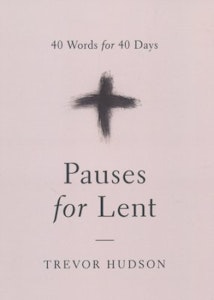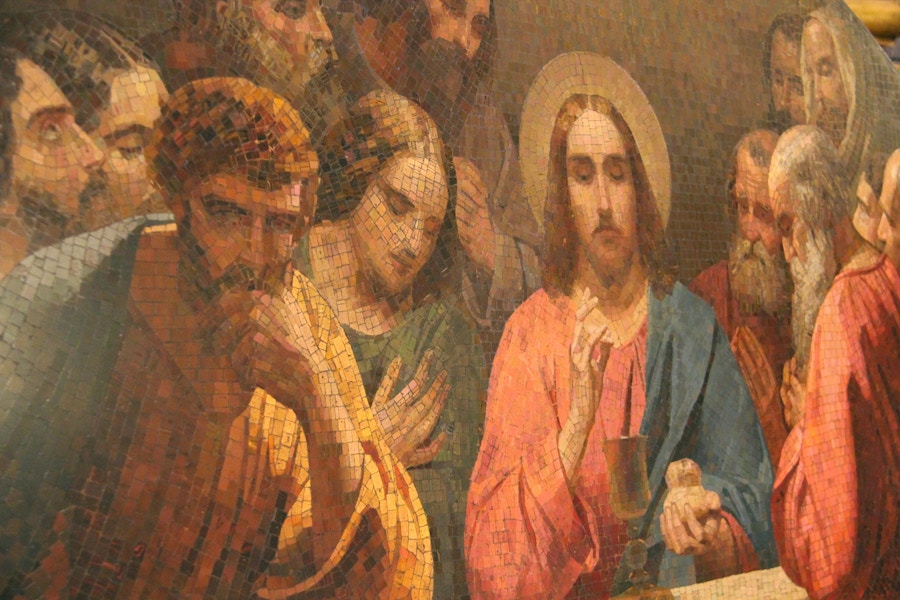 Excerpt from Pauses for Lent
Excerpt from Pauses for Lent
Jesus went on with his disciples to the villages of Caesarea Philippi; and on the way he asked his disciples, “Who do people say that I am?” And they answered him, “John the Baptist; and others, Elijah; and still others, one of the prophets.” He asked them, “But who do you say that I am?” Peter answered him, “You are the Messiah.” And he sternly ordered them not to tell anyone about him.
Then he began to teach them that the Son of Man must undergo great suffering, and be rejected by the elders, the chief priests, and the scribes, and be killed, and after three days rise again. He said all this quite openly. And Peter took him aside and began to rebuke him. But turning and looking at his disciples, he rebuked Peter and said, “Get behind me, Satan! For you are setting your mind not on divine things but on human things.”
—Mark 8:27 – 33 NRSV
Midway through Mark’s Gospel, the mood suddenly changes. During the first eight chapters, we can feel the energy, excitement, and action. Jesus moves from village to village proclaiming the availability of another kind of life, liberating those enslaved by evil, healing the sick, feeding the hungry, and stilling storms and seas. Jesus bears the fruit of a successful ministry. Then comes an abrupt shift in atmosphere. As Eugene Peterson observes, the last eight chapters are dominated by death talk rather than talk about life.
This turning point revolves around a direct question put by Jesus to his disciples, “Who do you say that I am?” Few questions are more important. Is Jesus a myth created by the imaginings of the Gospel writers — some sort of superhero figure able to swoop down into our lives and sort everything out? Is Jesus a great human teacher able to perform miracles? Our response will shape our lives more than our answers to any other question with which we are faced.
When Jesus initially asks this question, Peter blurts out, “You are the Messiah.” This response, at this stage of Mark’s Gospel, is not a declaration that Jesus is divine or the second part of the Trinity or God. This fuller understanding of Jesus will come later. Here Peter is declaring that Jesus is indeed the One for whom his people have waited so long, the true Servant-King who will usher in God’s reign both for Israel and the world. What Peter does not know is that his declaration will turn his life upside down from that time on.
Now it is our moment to wrestle with this question. Who do we say Jesus is? Are we willing, with Peter, to affirm that he is the One for whom our hearts also yearn? Will we also acknowledge him to be the One who alone can heal and empower the human condition? And will we dare to allow him to change our understanding of what it means to follow him today? We can be very sure that if we do call him the Christ and embrace his way of death and resurrection for our lives, it will turn our lives upside down too.
Hudson, Trevor. Pauses for Lent: 40 Words for 40 Days. Upper Room Books. Kindle Edition. Used with permission.
Photo by Jongsun Lee
Text First Published January 2015


